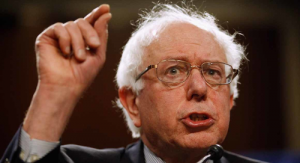
In a policy statement on HIV AIDS and in a series of tweets, Senator Bernie Sanders reaffirmed his support of the delinkage of R&D costs from drug prices.
This is from Senator Sander’s campaign 2016 statement on “Working to Create an AIDS and HIV-Free Generation.”
THE PRIZE PLAN FOR HIV/AIDS
As president, Bernie will fight to reform the existing patent laws written by and for the pharmaceutical industry to boost their profits and which make medicine so expensive in the United States.
To lower costs for HIV/AIDS drugs everywhere, Bernie has a plan that would establish a multibillion-dollar prize fund to incentivize drug development. This prize fund would replace our country’s broken system that drives drug prices up through government-sanctioned monopolies.
Bernie’s plan would provide virtually universal access to lower-cost life-saving medicines for HIV/AIDS as soon as they are approved for sale.
Under Bernie’s plan, innovation would be rewarded annually from a Prize Fund for HIV/AIDS therapies. The amount of money in the Prize Fund for HIV/AIDS would be more than $3 billion per year.
The Prize Fund would reward medical researchers and developers of medicines based primarily upon the added therapeutic value a new treatment offers and the number of people it benefits. Instead of a system where the market is manipulated to keep out all competition, companies would be rewarded for their innovation with a cash prize for their medical innovations, rather than through the grant of a monopoly. Under Bernie’s plan, drugs would have generic competition immediately after FDA approval.
In other words, this plan would break the link between drug development and the rewards for medical research and development. In doing so, we will reward true innovation, eliminate the market incentive for copycat drugs and get all HIV/AIDS treatments to the people who need them at generic prices.
The Prize Fund proposal would also be much cheaper than the current system, reducing the costs of the drugs to employers, taxpayers and patients by billions of dollars per year.
